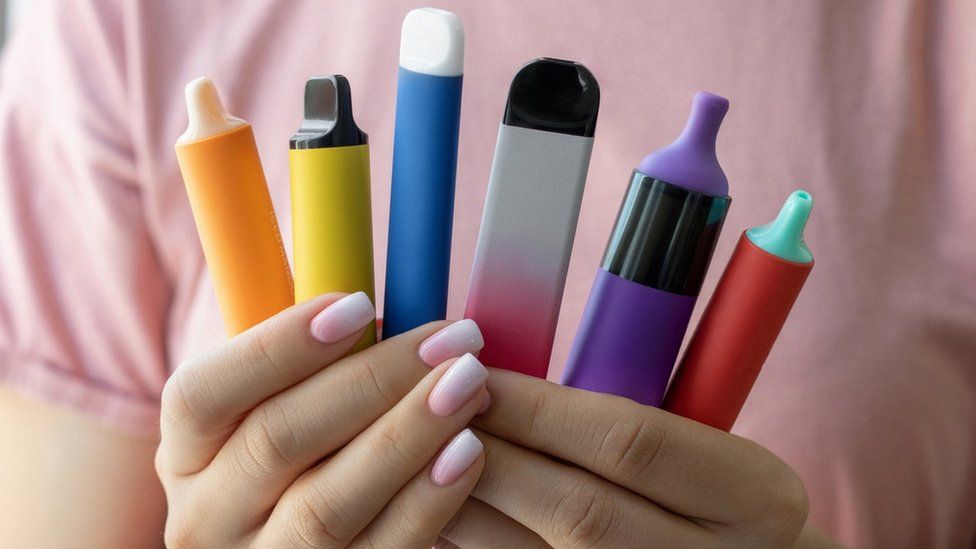-

-
-
Loading

Loading

The government plans to ban disposable vapes in an effort to address the increasing number of young people taking up vaping. Measures will also be implemented to prevent the marketing of vapes to children and to combat underage sales. Recent data from the charity Action on Smoking and Health (Ash) reveals that 7.6% of 11 to 17-year-olds now regularly or occasionally vape, up from 4.1% in 2020. The ban is expected to be introduced nationwide, and the details will be explained by Prime Minister Rishi Sunak during a school visit. The government aims to act before youth vaping becomes widespread, according to Sunak. This move follows last year's announcement prohibiting the sale of cigarettes to those born on or after 1 January 2009 to create a "smoke-free generation." Disposable vapes, particularly the colorful ones sold in smaller packaging compared to refillable vapes, are believed to be the main cause of the rise in youth vaping. Campaigners argue that these products are wasteful and pose challenges in safe disposal due to the materials and chemicals used in their production. The ban's specific timing is yet to be determined, but existing legislation focused on environmental protection could be used for its implementation. Retailers will be granted six months to comply with the ban once the timing is confirmed. Further changes will include measures to prevent the sale of refillable vapes in child-friendly flavors and the requirement for plainer packaging. The government will gain the power to ensure that shops display refillable vapes out of sight of children and away from other items attractive to them. Additionally, a public consultation will determine the banned flavors and regulations for selling refillable vapes. Some of the currently available child-friendly vape flavors include those modeled after cookies, jam, and energy drinks. To address underage sales, England and Wales plan to introduce additional fines for shops caught illegally selling vapes to children. Moreover, nicotine pouches, which contain nicotine but not tobacco, will also be banned for children. Although vaping is significantly less harmful than smoking, its long-term risks are still unclear, as stated by the NHS. Health leaders intend to ensure that the new measures do not hinder adult smokers seeking an alternative to traditional cigarettes. These government plans come after a consultation conducted last year to gauge public sentiments regarding measures to reduce smoking and vaping rates. Nearly 70% of respondents supported a ban on disposable vapes. The Scottish and Welsh governments have also expressed their intention to adopt similar measures. Scotland and Wales emphasized the threat to public health posed by disposable vapes and their commitment to achieving a tobacco-free society. Northern Ireland, which currently lacks a devolved administration, will make preparations for incoming ministers to decide on the ban. Ash's chief executive Deborah Arnott praised the government's strategy, emphasizing the importance of reducing smoking initiation, supporting smokers in quitting, and safeguarding children from youth vaping. The Royal College of Paediatrics and Child Health welcomed the government's efforts, highlighting the potential to reduce preventable diseases in the future. The UK Vaping Industry Association expressed disappointment with the ban, arguing that it would benefit illicit vapes and the black market. They suggested better enforcement of existing laws instead. Other countries, including Australia, France, Germany, and New Zealand, have also announced plans to ban disposable vapes, with New Zealand being the only one to enact such measures thus far. Some critics believe that the UK's plans do not go far enough, advocating for a tax on e-cigarettes to align them with tobacco products. Australia currently requires a prescription for vaping products. Trading Standards officers argue that more resources are necessary to combat rogue retailers and prevent vapes containing illicit substances from entering the UK and reaching children.